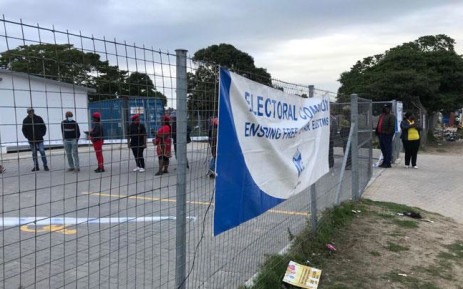As the specter of the 2024 national election looms over South Africa, an alarming trend has emerged: more than 80% of the country’s youth remain undecided about casting their votes, and a significant portion plans to eschew the democratic process altogether. The Human Sciences Research Council (HSRC) sheds light on this disconcerting phenomenon, revealing that dissatisfaction with democratic leaders and institutions is the primary deterrent for the youth. This discontent has reached a point where 82% of young individuals express their intention to abstain from voting in the upcoming election, not out of apathy, but rather as a consequence of profound dissatisfaction with the state of democracy.
1. Dissatisfaction with Democratic Leaders:
At the heart of the youth’s disengagement lies a pervasive dissatisfaction with democratic leaders. According to the HSRC’s survey, a staggering 87% of young people express discontent with their leaders. This discontent reflects a profound lack of confidence in the ability of the current political leadership to address the unique challenges faced by the youth. Whether it’s economic concerns, social issues, or the broader political landscape, the youth perceive a failure on the part of democratic leaders to meaningfully engage with and address their needs.
2. Decline in Confidence in Political Institutions:
Beyond dissatisfaction with individual leaders, the study underscores a broader decline in confidence in political institutions. This erosion of trust extends to political parties and various levels of government. The youth’s disillusionment may stem from a perception that these institutions are ineffective or, worse, unresponsive to their concerns. Rebuilding this trust is crucial for fostering a sense of political efficacy among the youth, as a lack of faith in institutions can contribute to disengagement from the democratic process.
3. Perceived Insignificance of Individual Votes:
A concerning trend highlighted in the study is the belief among young people that their individual votes are inconsequential. This perception of political powerlessness can be a significant barrier to democratic participation. It suggests a need for initiatives that emphasize the impact of individual votes and underscore the collective strength that arises from widespread civic engagement. Empowering the youth with the knowledge that their voices and votes can effect change is essential to revitalizing their interest in the democratic process.
4. Corruption and Socio-Economic Conditions:
The study identifies perceived corruption, poor socio-economic conditions, and unfulfilled promises as key factors contributing to youth disillusionment. Corruption erodes the trust citizens have in their leaders and institutions, while socio-economic challenges directly impact the daily lives of young people. Tackling these issues requires a multifaceted approach, including transparent governance, effective anti-corruption measures, and targeted policies to address socio-economic disparities.
5. Load Shedding as a Contributing Factor:
An intriguing revelation from the study is the impact of practical issues, such as load shedding, on voting decisions. This highlights how infrastructural challenges and service delivery directly influence the political attitudes of the youth. Addressing these practical concerns is not only a matter of improving governance but also a strategic move to re-engage the youth by demonstrating tangible improvements in their quality of life.
6. Regional Variations:
The study points to regional variations, with Gauteng and Kwazulu-Natal exhibiting the highest numbers of undecided young voters. Understanding these regional nuances is crucial for tailoring interventions and strategies to address specific challenges faced by the youth in different areas. A targeted and region-specific approach can yield more effective results in countering disengagement.
In the face of a looming national election, South Africa grapples with a formidable challenge: the disengagement of its youth from the democratic process. The findings from the HSRC study illuminate the multifaceted nature of this issue, rooted in dissatisfaction with leaders, a decline in institutional trust, and a perception of individual votes as inconsequential. To reverse this trend, concerted efforts are needed to rebuild trust, address corruption, and demonstrate the responsiveness of democratic institutions to the needs of the youth. Furthermore, acknowledging regional variations and tailoring strategies accordingly will be pivotal in fostering a renewed sense of civic duty among the country’s young population. The success of the 2024 election hinges on the ability to transform disillusionment into active participation, ensuring that the youth’s voices are not only heard but also recognized as potent agents of change in shaping South Africa’s democratic future.









